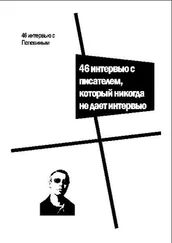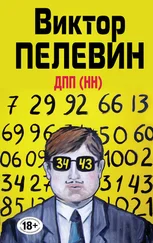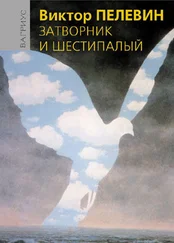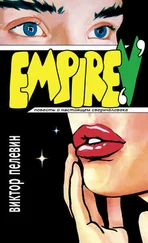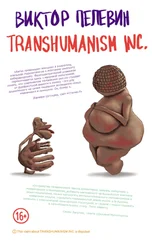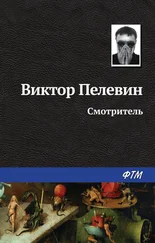Виктор Пелевин - Babylon
Здесь есть возможность читать онлайн «Виктор Пелевин - Babylon» весь текст электронной книги совершенно бесплатно (целиком полную версию без сокращений). В некоторых случаях можно слушать аудио, скачать через торрент в формате fb2 и присутствует краткое содержание. Жанр: Современная проза, на английском языке. Описание произведения, (предисловие) а так же отзывы посетителей доступны на портале библиотеки ЛибКат.
- Название:Babylon
- Автор:
- Жанр:
- Год:неизвестен
- ISBN:нет данных
- Рейтинг книги:5 / 5. Голосов: 1
-
Избранное:Добавить в избранное
- Отзывы:
-
Ваша оценка:
- 100
- 1
- 2
- 3
- 4
- 5
Babylon: краткое содержание, описание и аннотация
Предлагаем к чтению аннотацию, описание, краткое содержание или предисловие (зависит от того, что написал сам автор книги «Babylon»). Если вы не нашли необходимую информацию о книге — напишите в комментариях, мы постараемся отыскать её.
Babylon — читать онлайн бесплатно полную книгу (весь текст) целиком
Ниже представлен текст книги, разбитый по страницам. Система сохранения места последней прочитанной страницы, позволяет с удобством читать онлайн бесплатно книгу «Babylon», без необходимости каждый раз заново искать на чём Вы остановились. Поставьте закладку, и сможете в любой момент перейти на страницу, на которой закончили чтение.
Интервал:
Закладка:
Victor Pelevin. Babylon
CHAPTER 1. Generation ‘P’
All trade marks mentioned in the text are the property of their owners. All rights are reserved. Names of goods and politicians do not indicate actual commercial products; they refer only to projections of elements of the politico-commercial informational field that have been forcibly induced as perceptual objects of the individual mind. The author requests that they be understood exclusively in this sense. Any other coincidences are purely accidental. The author’s opinions do not necessarily coincide with his point of view.
Once upon a time in Russia there really was a carefree, youthful generation that smiled in joy at the summer, the sea and the sun, and chose Pepsi.
It’s hard at this stage to figure out exactly how this situation came about. Most likely it involved more than just the remarkable taste of the drink in question. More than just the caffeine that keeps young kids demanding another dose, steering them securely out of childhood into the clear waters of the channel of cocaine. More, even, than a banal bribe: it would be nice to think that the Party bureaucrat who took the crucial decision to sign the contract simply fell in love with this dark, fizzy liquid with every fibre of a soul no longer sustained by faith in communism.
The most likely reason, though, is that the ideologists of the USSR believed there could only be one truth. So in fact Generation ‘P’ had no choice in the matter and children of the Soviet seventies chose Pepsi in precisely the same way as their parents chose Brezhnev.
No matter which way it was, as these children lounged on the seashore in the summer, gazing endlessly at a cloudless blue horizon, they drank warm Pepsi-Cola decanted into glass bottles in the city of Novorossiisk and dreamed that some day the distant forbidden world on the far side of the sea would be part of their own lives.
Babylen Tatarsky was by default a member of Generation ‘P’, although it was a long time before he had any inkling of the fact. If in those distant years someone had told him that when he grew up he would be a copywriter, he’d probably have dropped his bottle of Pepsi-Cola on the hot gravel of the pioneer-camp beach in his astonishment. In those distant years children were expected to direct their aspirations towards a gleaming fireman’s helmet or a doctor’s white coat. Even that peaceful word ‘designer’ seemed a dubious neologism only likely to be tolerated until the next serious worsening in the international situation.
In those days, however, language and life both abounded in the strange and the dubious. Take the very name ‘Babylen’, which was conferred on Tatarsky by his father, who managed to combine in his heart a faith in communism with the ideals of the sixties generation. He composed it from the title of Yevtushenko’s famous poem ‘Baby Yar’ and Lenin. Tatarsky’s father clearly found it easy to imagine a faithful disciple of Lenin moved by Yevtushenko’s liberated verse to the grateful realisation that Marxism originally stood for free love, or a jazz-crazy aesthete suddenly convinced by an elaborately protracted saxophone riff that communism would inevitably triumph. It was not only Tatarsky’s father who was like that - the entire Soviet generation of the fifties and sixties was the same. This was the generation that gave the world the amateur song and ejaculated the first sputnik - that four-tailed spermatozoon of the future that never began - into the dark void of cosmic space.
Tatarsky was sensitive about his name, and whenever possible he introduced himself as Vladimir or Vova. Then he began lying to his friends, saying that his father had given him a strange name because he was keen on Eastern mysticism, and he was thinking of the ancient city of Babylon, the secret lore of which was destined to be inherited by him, Babylen. His father had invented his alloy of Yevtushenko and Lenin because he was a follower of Manicheism and pantheism and regarded it as his duty to balance out the principle of light with the principle of darkness. Despite this brilliantly elaborated fable, at the age of eighteen Tatarsky was delighted to be able to lose his first passport and receive a new one in the name of Vladimir.
After that his life followed an entirely ordinary pattern. He went to a technical institute - not, of course, because he had any love for technology (he specialised in some kind of electric furnace), but because he didn’t want to go into the army. However, at the age of twenty-one something happened to him that changed the course of his life for ever.
Out in the countryside during the summer he read a small volume of Boris Pasternak. The poems, which had previously left him entirely cold, had such a profound impact that for several weeks he could think of nothing else - and then he began writing verse himself. He would never forget the rusty carcass of a bus, sunk at a crooked angle into the ground on the edge of the forest outside Moscow at the precise spot where the very first line of his life came to him: "The sardine-clouds swim onwards to the south.’ (He later came to realise this poem had a distinctly fishy odour.) In short, his was an absolutely typical case, which ended in typical fashion when Tatarsky entered the Literary Institute. He couldn’t get into the poetry department, though, and had to content himself with translations from the languages of the peoples of the USSR. Tatarsky pictured his future approximately as follows: during the day - an empty lecture hall in the Literary Institute, a word-for-word translation from the Uzbek or the Kirghiz that had to be set in rhyme by the next deadline; in the evenings - his creative labours for eternity.
Then, quite unobtrusively, an event of fundamental significance for his future occurred. The USSR, which they’d begun to renovate and improve at about the time when Tatarsky decided to change his profession, improved so much that it ceased to exist (if a state is capable of entering nirvana, that’s what must have happened in this case); so any more translations from the languages of the peoples of the USSR were quite simply out of the question. It was a blow, but Tatarsky survived it. He still had his work for eternity, and that was enough for him.
Then events took an unforeseen turn. Something began happening to the very eternity to which he had decided to devote his labours and his days. Tatarsky couldn’t understand this at all. After all, eternity - at least as he’d always thought of it - was something unchangeable, indestructible and entirely independent of the transient fortunes of this earthly realm. If, for instance, the small volume of Pasternak that had changed his life had already entered this eternity, then there was no power capable of ejecting it.
But this proved not to be entirely true. It turned out that eternity only existed for as long as Tatarsky sincerely believed in it, and was actually nowhere to be found beyond the bounds of this belief. In order for him to believe sincerely in eternity, others had to share in this belief, because a belief that no one else shares is called schizophrenia; and something strange had started happening to everyone else, including the very people who had taught Tatarsky to keep his eyes fixed firmly on eternity.
It wasn’t as though they’d shifted their previous point of view, not that - just that the very space into which their gaze had been directed (after all, a point of view always implies gazing in some particular direction) began to curl back in on itself and disappear, until all that was left of it was a microscopic dot on the windscreen of the mind. Glimpses of entirely different landscapes began to fill in their surroundings.
Tatarsky tried to fight it and pretend that nothing was actually happening. At first he could manage it. By keeping close company with his friends, who were also pretending that nothing was happening, for a time he was able to believe it was true. The end came unexpectedly.
Читать дальшеИнтервал:
Закладка:
Похожие книги на «Babylon»
Представляем Вашему вниманию похожие книги на «Babylon» списком для выбора. Мы отобрали схожую по названию и смыслу литературу в надежде предоставить читателям больше вариантов отыскать новые, интересные, ещё непрочитанные произведения.
Обсуждение, отзывы о книге «Babylon» и просто собственные мнения читателей. Оставьте ваши комментарии, напишите, что Вы думаете о произведении, его смысле или главных героях. Укажите что конкретно понравилось, а что нет, и почему Вы так считаете.

